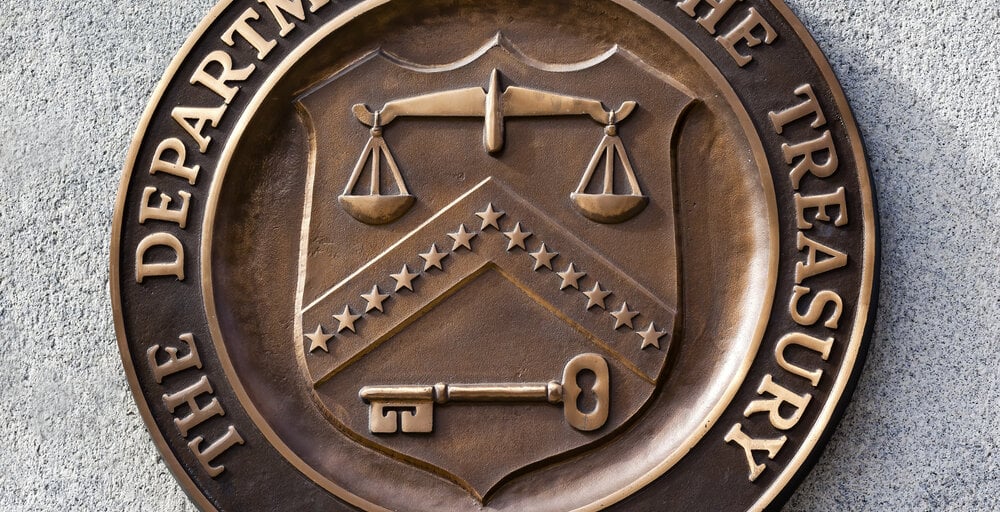In a new court filing in support of the ongoing legal action against the U.S. Department of Treasury, individuals seeking to overturn the decision to sanction Ethereum mixing service Tornado Cash presented key arguments for the case.
Per the plaintiffs, “this case is not about carving out special rules for new technology,” but rather holding the Treasury “to the basic requirements of the International Emergency Economic Powers Act (IEEPA) and the Free Speech Clause of the First Amendment to the United States Constitution.”
Taking to Twitter, Coinbase’s chief legal officer Paul Grewal summarized the arguments, stating that “they all come down to the same problem,” that the Government is attempting to ban open-source software using a property sanctions statute.
“Because this isn’t what the law was meant to do, [the Government] can’t make the law fit this case,” argues Grewal.
The plaintiffs make 4 points here, but they all come down to the same problem. The Govt. is trying to ban the use of an open-source software using a property sanctions statute. Because this isn’t what the law was meant to do, they can’t make the law fit this case. 2/7
— paulgrewal.eth (@iampaulgrewal) May 24, 2023
Tornado Cash is a privacy-focused service that allows people to transact anonymously on the Ethereum blockchain by mixing users’ transactions to make it difficult to identify individual senders or receivers.
The Department of the Treasury’s Office of Foreign Assets Control (OFAC) controversially added the mixer to its Specially Designated Nationals and Blocked Persons (SDC) list in August 2022, thereby sanctioning Ethereum wallets associated with the service.
An official statement from U.S. regulators alleges Tornado Cash has helped launder more than $7 billion dollars since its inception in 2019, citing North Korean hackers and other malicious actors.
A lawsuit against the Treasury, which is backed by Coinbase and also named Treasury Secretary Janet Yellen and OFAC Director Andrea Gacki, was filed shortly after, with the sanctions against Tornado Cash contested on four main points.
First, the plaintiffs contend that the Treasury defined “Tornado Cash” to include anyone who holds a digital token TORN, even though “that is not an unincorporated association under the Department’s own test.”
Commenting on this point, Grewal said that “sanctions depend on assuming that anyone who happens to hold a digital token (TORN) is a member of a legally-recognized entity called ‘Tornado Cash.’ That’s novel as a legal theory, and it’s wrong as a factual matter.”
The second argument centers on the Department’s failure to explain how the immutable, open-source smart contracts listed in the designation—which no one can own or control—are sanctionable “property.”
As explained by Grewal, “the legal definition of property is something that can be owned. But the open-source, immutable smart contracts at the heart of this privacy software cannot be owned, controlled, or changed by anyone.
Consequently, the third challenge is that no one, including the creators, developers, or owners of TORN tokens, has a “property interest” in these smart contracts, according to Grewal.
“In seeking to find such an interest, the Department relies only on allegations that the purported Tornado Cash entity has interests in something other than the immutable smart contracts or would tend to profit from increased use of the immutable smart contracts. Neither one is an “interest” in property in the immutable smart contracts, as IEEPA requires,” reads the filing.
First Amendment Violation
The fourth argument refers to what the plaintiffs say is the violation of the First Amendment, which broadly protects the rights of free speech.
“Sanctioning Tornado Cash unconstitutionally burdened speech under the First Amendment,” said Grewal. “Plaintiffs used the software to protect their privacy while engaging in core 1A speech like important donations.”
According to Coinbase’s chief legal officer, the Government’s response is “worrisome” as it basically tells people “go speak somewhere else.”
“But the 1A is stronger than that. The Govt. can’t simply tell law-abiding Americans to go exercise their freedom in some other venue with far fewer personal protections,” added Grewal.
Argument #4: Sanctioning Tornado Cash unconstitutionally burdened speech under the First Amendment. Plaintiffs used the software to protect their privacy while engaging in core 1A speech like important donations. The Govt’s answer is worrisome. Basically, it is “go speak…
— paulgrewal.eth (@iampaulgrewal) May 24, 2023
The legal battle comes as the Dutch court on Wednesday granted Alexey Pertsev, the creator of Tornado Cash, permission to question blockchain analytics company Chainalysis in his ongoing money laundering trial.
According to Chainalysis’ January report, 34% of all funds sent to Tornado Cash came from illicit sources, with the bulk of activity concentrated on two forms of cybercrime: crypto hacks and scams.
Pertsev’s lawyers now want to question the firm because of the role its data played in the developer’s arrest in August last year.
Stay on top of crypto news, get daily updates in your inbox.
Source: https://decrypt.co/142360/government-sanctions-tornado-cash-dont-fit-law-coinbase-chief-legal-officer


